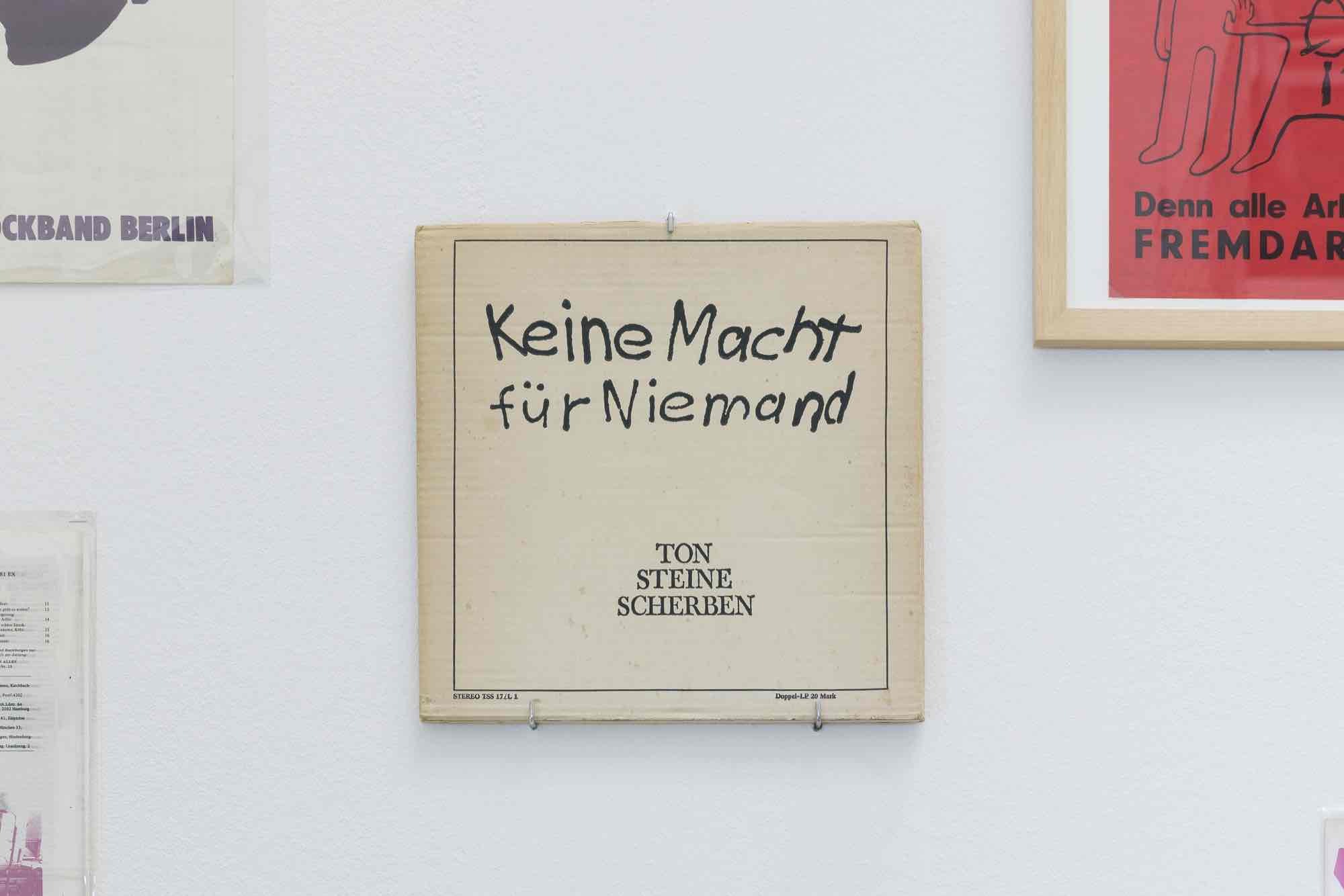Archiv 451 / Trikont Verlag
30 Jun 2023 - 18 Feb 2024
The exhibition series "Archives in Residence" at the Archiv Galerie of Haus der Kunst focuses on independent local archives as alternative places of knowledge production. In 2023, the series will be continued with testimonies of the subcultural awakening and anti-authoritarian protest movements.
Trikont was the first autonomous publishing house in the Federal Republic. Founded in Cologne in 1967 and active in Munich since 1968, Trikont opened itself to alternative perspectives and motivated new social and ecological movements. lt was no coincidence that Trikont named itself after the 1966 Tricontinental Conference in Havana, where strategies were developed against the discrimination of the so-called "Third World". Among the first and most successful books were the "Mao Bible" and Che Guevara's "Bolivian Diary", which went through eleven editions. Trikont Verlag published German-language publications and translations on the contemporary European and regional labour movement, on decolonisation and anti-fascism, on alternative ways of life and radical social changes. Also, Trikont was the starting point of the publishing house Frauenoffensive, the first autonomous feminist publishing house in the Federal Republic.
Trikont discovered the unifying power of music early on. In 1972, Trikont — Unsere Stimme started producing records, which led to the Trikont Musikverlag, the oldest German independent label. The first records were "Arbeitersache München — Wir befreien uns selbst" with protest songs brought by workers from their home countries, and "Keine Macht für Niemand", probably the most famous album by Ton Steine Scherben. In 1980, the publisher and the record label split up.
After the publisher filed for bankruptcy in 1986, the former editor Christine Dombrowsky built up the Archive 451 (the name is a reference to the Truffaut film "Fahrenheit 451") from the remaining publications and materials. In 2010, shortly before her death, she handed over her archive to the Munich Labour Movement Archive. The exhibition brings together documents from Archive 451 and the archive holdings of Trikont — Unsere Stimme. One focus is on publications and records as well as posters, photographs and film material.
The exhibition is designed to be multi-voiced. In addition to music, sound samples by Trikont actors, companions and artists can be heard. Their memories and comments are brought together with the exhibits in terms of space and content, and combine to form the soundtrack of the Trikont stories.
Curator: Sabine Brantl
Trikont was the first autonomous publishing house in the Federal Republic. Founded in Cologne in 1967 and active in Munich since 1968, Trikont opened itself to alternative perspectives and motivated new social and ecological movements. lt was no coincidence that Trikont named itself after the 1966 Tricontinental Conference in Havana, where strategies were developed against the discrimination of the so-called "Third World". Among the first and most successful books were the "Mao Bible" and Che Guevara's "Bolivian Diary", which went through eleven editions. Trikont Verlag published German-language publications and translations on the contemporary European and regional labour movement, on decolonisation and anti-fascism, on alternative ways of life and radical social changes. Also, Trikont was the starting point of the publishing house Frauenoffensive, the first autonomous feminist publishing house in the Federal Republic.
Trikont discovered the unifying power of music early on. In 1972, Trikont — Unsere Stimme started producing records, which led to the Trikont Musikverlag, the oldest German independent label. The first records were "Arbeitersache München — Wir befreien uns selbst" with protest songs brought by workers from their home countries, and "Keine Macht für Niemand", probably the most famous album by Ton Steine Scherben. In 1980, the publisher and the record label split up.
After the publisher filed for bankruptcy in 1986, the former editor Christine Dombrowsky built up the Archive 451 (the name is a reference to the Truffaut film "Fahrenheit 451") from the remaining publications and materials. In 2010, shortly before her death, she handed over her archive to the Munich Labour Movement Archive. The exhibition brings together documents from Archive 451 and the archive holdings of Trikont — Unsere Stimme. One focus is on publications and records as well as posters, photographs and film material.
The exhibition is designed to be multi-voiced. In addition to music, sound samples by Trikont actors, companions and artists can be heard. Their memories and comments are brought together with the exhibits in terms of space and content, and combine to form the soundtrack of the Trikont stories.
Curator: Sabine Brantl







